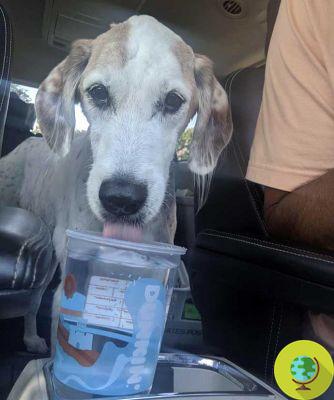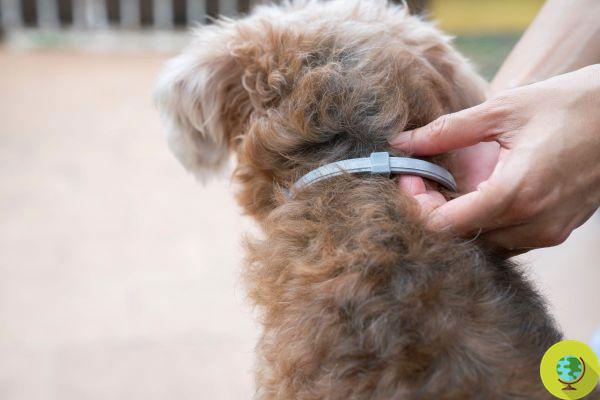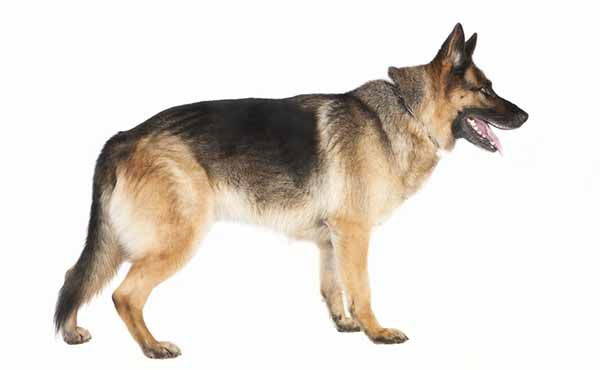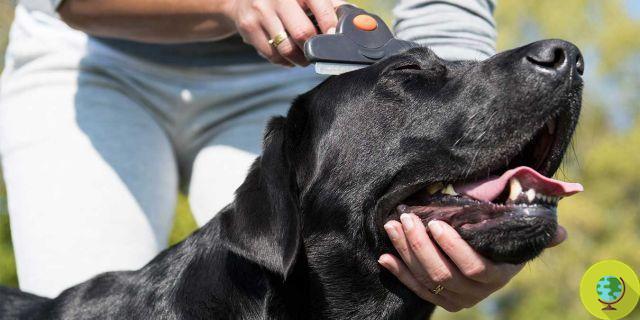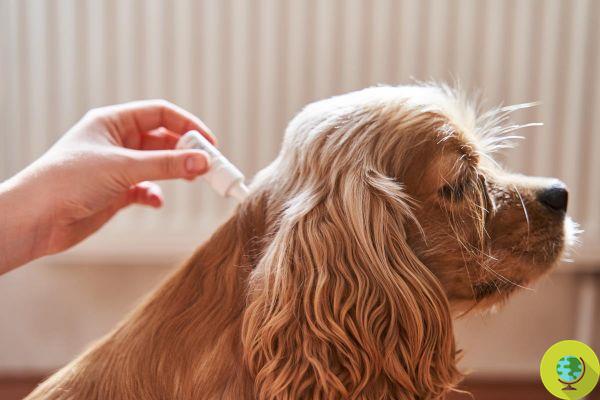Can Dogs Eat Kefir? Yes, and it is also very beneficial. Find out how, when and why to get your dog on probiotics
Can Dogs Eat Kefir? Yes, and it is also very beneficial, especially at certain times. How, when and why to get your dog on probiotics
La dog health it also depends on its intestinal flora. In fact, pets can often have problems with diarrhea, halitosis, intestinal gas, itching and infections.
Precisely to treat these problems and for the well-being of Fido, the so-called "good" bacteria present in kefir are essential to keep your immune system and intestinal balance strong. Let's find out all about probiotics for dogs, and why kefir is one of the best products for these pets.
Index
What are probiotics
I Probiotics they are live microorganisms that are found mainly in the gastrointestinal tract of the dog, but extend into all organs of the body. And the ancient Greek meaning for probiotics means "life".
Probiotics are beneficial bacteria that help maintain balance in the dog's body; therefore it is important that there are enough of them to balance out the bad bacteria and keep the intestinal flora stable.
If the dog's digestive system is unstable, i.e. if you have a sensitive stomach, gas problems, belching, diarrhea, yeast outbreaks or skin allergies, the first thing to do is to see a veterinarian, who will likely administer supplements to based on probiotics.
Why give dogs probiotics? Here are some of the benefits:
- Probiotics rebuild gut flora populations after antibiotic use
- They help ease the transition between diets, preventing diarrhea and vomiting
- They provide excellent results with the healing of yeast infections
- They help treat and prevent ear infections
- Help balance a dog with exocrine pancreatic insufficiency (EPI)
- They help calm the sensitive stomach
- They reduce or eliminate gas and belching
- Probiotics reduce or eliminate body odor
- They reduce or eliminate bad dog breath
- Effective in reducing or eliminating excessive diarrhea by firming the stool
- They reduce itching and skin problems

@Tatiana Gladskikh/123rf
What probiotics to give to the dog
The dog needs probiotics every day; the reason? These bacteria are essential for good health; In addition, it is also good to vary the types of probiotics, to get the maximum benefits from various strains of healthy bacteria.
On the market it is possible to opt for various types of products; for example there are the probiotic supplements cheap and very convenient powders because you just need to add them directly to the food bowl and mix.
Which one to choose? We recommend a probiotic with as many species of good bacteria as possible with at least 2 billion CFU per scoop, and that does not contain animal sugars.
Here are the characteristics of a good powder product:
- A high number of bacterial species
- Traceable and certified production
- It must be tasteless
- It must not contain artificial and chemical ingredients
Those looking for anatural alternative can opt for the goat milk, rich in natural probiotics and low in lactose, the sugar found in cow's milk, so it doesn't cause the same digestive problems as regular milk.
In addition to goat milk, we recommend the kefir, because it is full of natural probiotics that are healthy for dogs.
(Read also: Probiotics to fight anxiety)
What's in Kefir?
Kefir is a water-based drink rich in vitamins and minerals. Provides a wide variety of whole food probiotic organisms with essential healing properties.
Although similar in nature to the yogurtBeing a fermented milk product, Kefir has a far better medicinal profile that can actually solve problems in the intestinal tract.
Il kefir contains fine to 36 strains of friendly bacteria, and several major strains not commonly found in yogurt; in addition, it also contains beneficial yeasts, which control and remove destructive pathogenic yeasts in the dog's body.
Kefir grains consist mainly of a combination of insoluble proteins, amino acids, lipids and complex sugars. In addition, it is packed with vitamin B1, B12, vitamin A, vitamin D, vitamin K and biotin; while, the main minerals present in kefir are football, phosphorus e magnesium.
(Read also: Kefir: good, but not for everyone! Possible damage and side effects)
Benefits and properties of kefir
Kefir is a natural product, rich in benefits e property; according to a study, in fact, the probiotics present in it are effective in guaranteeing the health of pets. The following are the main properties of this drink:
- Antibiotic and anti-fungal properties
- Helps prevent allergies
- Effective against skin problems
- Strengthens the immune system
- Helps with gas, irritable bowel and sensitive stomach
- It can counteract bad breath.
- Helps with pancreatitis, joint disease and anemia
- It reduces the increase of cancer cells
- It can help with depression and anxiety
(Read also: Kefir and yogurt: what are the differences and which one to prefer?)
Kefir essential probiotics excellent for dogs
Lactobacillus acidophilus
Lactobacillus acidophilus produces lactic acid and reduces cholesterol. Another function of this particular probiotic is to lower blood sugar.
Dogs with seasonal allergies, such as allergies to various herbs, can benefit from this probiotic as it reduces an antibody in the gut that is involved in the production of seasonal allergies.
Lactobacillus acidophilus also has very beneficial properties for dogs suffering from digestive problems, as lactic acid lines the gut and prevents harmful bacteria from producing and potentially overpopulating the gut. In addition, it can strengthen the dog's immune system, which in turn can help fight allergic reactions.
Bifidobacterium bifidum
This probiotic is effective in case of allergies affecting the digestive system and older dogs, which may need digestive help due to their age.
Streptococcus thermophilus
Streptococcus thermophilus is an effective aid for dogs with allergies.
If the dog is intolerant to lactose or actually suffer from a lactose-based allergy, this probiotic can improve the digestion of the same and thus relieve the symptoms of intolerance. Another benefit of this probiotic is that stimulates the immune system to work more efficiently.
Your dog's oral health can also depend on this probiotic. In fact, the growth of gingivitis can be slowed down and bad breath can be reduced, even reducing the number of bad bacteria that cause it.
Streptococcus thermophilus is also indicated to increase the natural barrier of the skin, which protects against allergies and infections.
Lactobacillus delbrueckii bulgaricus
This is another probiotic that improves the immune system, but it also improves heart health, metabolic health, and digestive health.
Lactobacillus helveticus
This is another bacterium, which supports natural lactic acid in the dog's gut. Fido's digestive health can be greatly improved by digesting this probiotic; therefore, if your pet suffers from digestive symptoms due to allergies, this probiotic can help him a lot in relieving the symptoms.
The anxiety reduction can also be attributed to this probiotic, when taken with Bifidobacterium longum. The allergies in dogs can increase thecanine craving, as the symptoms cause discomfort and this can increase stress.
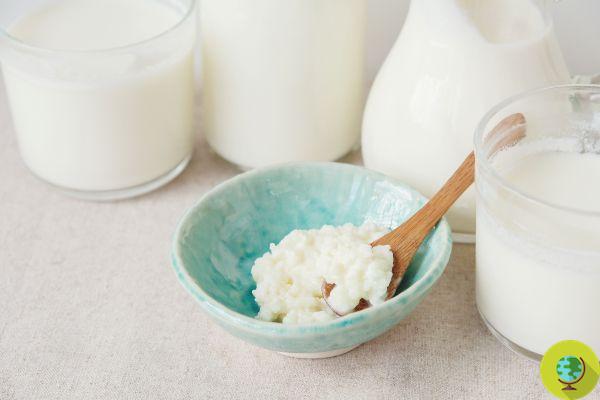
@Thitarees/123rf
Dosage and side effects of kefir milk for dogs with allergies
In the beginning, both humans and dogs can have mild side effects to kefir, but these are entirely temporary.
In dogs, the most common side effects include mild digestive disorders, but also belching, constipation or a mild stomach pain. Kefir is not a medicine or a drug, therefore we cannot speak of the correct dosage, but of the ideal quantity which varies according to the size of the pet.
- For small dogs (Yorkshire Terrier, Chihuahua and Beagle, etc.) start gradually: for the first few days 2 teaspoons of Kefir. After this initial test period, it can be increased to 1 full tablespoon per day.
- For medium-sized dogs (Collie, Samoyed and Siberian Husky dogs) 2 dessert spoons of Kefir per day are initially sufficient. After this initial trial period, it goes to 2 full tablespoons per day.
- Large breed dogs (Bernese Mountain Dog, Boxer, Bullmastiff, etc.) can start with 1 tablespoon of Kefir per day. After this initial test period, even 3 full tablespoons per day.
How to make kefir milk for dogs at home
It is possible to create the initial culture at home, but doing so adds about 8 days of fermentation and adds a complicated process, which most people prefer to avoid. Consequently, we recommend that you purchase the initial crop, and then proceed with the DIY.
ingredients:
- A spoonful of milk kefir grains
- Two cups of milk
Equipment:
- Glass jar
- Heron
- A rubber band
- A spoon, a funnel and a measuring cup.
- Filter
- Bottles
Procedure:
- Add 2 cups of fresh milk to the jar
- Add a tablespoon of the kefir grains
- Cover the jar lid with gauze and secure it with the rubber band.
- Let the jar rest for 24 hours in a warm place at room temperature
- After that, filter the kefir into the bottles using a colander
Once you've made your first batch of milk kefir, the grains you discard can be reused over and over again.
Could it be interesting for you:
-
Probiotics and 'lactic ferments': are they really useful? What about antibiotics?
-
Kefir, what happens to the body by consuming a cup every day
-
Beware of packaged kefir: fewer enzymes and health benefits than stated on the label
-
Regular petting of dogs “significantly” reduces stress, a new study confirms






